This series began by encouraging you to make a decision to take control of your career. It’s too easy to defer taking control, especially in the midst of driving results. You may have the anticipation that the boss will “just notice and reward” all of the hard work you are doing. Take the time to proactively manage your future direction. Taking control of your career puts you in the driver’s seat. It makes a difference to your future when you spend time following your own roadmap. You can achieve what’s most important to you, not just to your company.
Vision and Values are important determinates of your future.
You can use your vision and values to provide the destination for your career, as well as point out what is important to you about reaching that destination. Values provide a touchstone for what resonates most for you in the future.
The bottom line message…do not let someone else determine your next career move!!
As your career plan proceeds, it’s important to check in on yourself and identify your core competencies and opportunity areas. This provides a realistic balance of strengths and weaknesses in your career journey. This is strategic career planning and these elements are important keys to the analysis and process.
These aren’t things that you normally consider, except at performance review time, or for the purposes of putting a resume together, for example.
Core competencies are best defined as those items that are strengths for you. The competencies are also defined as specialties that others recognize your expertise in. It’s those things at which you truly excel; the unique accomplishments that over time have become a part of your career brand and persona.
It also helps to engage others in defining these. You can view 360-degree feedback or look at past reviews to see what others have defined as your strengths.
Also, thinking back to the self-assessment exercises described in Part 2 of this series, your values and strengths will guide you to your core competencies. The Strengthfinders assessment gives you the top 5 (and more) strengths that you use in your work and life. I mentioned that the strength called, Restorative, is my number one strength. Restoratives are strong problem solvers. They solve complex people and project problems and drive results. That’s definitely me!
What do you know well and can contribute effectively?
Think of the things you know best and list these out. Where are you sought after for your knowledge on a particular topic? What do you feel is a real strength for you? What could you give a Ted Talk on if you needed to?
Now you also want to assess your opportunity areas. Those places where you want and need to improve.
Go back and look at performance reviews, think about feedback from the past. None of us are too crazy about negative feedback, but are there nuggets there that can suggest areas for improvement? Do you tend to be too sensitive to feedback? Are you disorganized and/or not presenting well to others? Do you have a conflict with peers often? Are you not strategic enough? List these out.
An honest assessment of those areas for improvement is essential to assist you in shoring up and building strengths. It’s a starting point for where you want to go in the future, and coming up with a plan to work through opportunity areas is a great development focus.
Now you have a composite picture of you and your career. It should include:
The awareness of the need to take control of your career direction
A Career Vision
Values
Strengths
Core competencies
Opportunity areas.
All of these are essential in career planning. The next stage is taking all of this information and developing your personal road map…strategic planning of your career.
ACTION CHALLENGE
Take some time this week to assess your core competencies and areas of opportunity. Make a list of each for your career planning objectives. Review your materials to ensure you have the full foundation for career planning.
Lupe S. Wood, MS, PCC, is a certified Career/Executive Coach. She coaches individuals and leaders to career fulfillment, transition, and advancement. She also consults for results with businesses and solopreneurs. Her background includes 12 years in senior leadership for a Fortune 100 corporation and 7 years as a coach, with a Master’s degree in Organizational Effectiveness and Executive Coaching.
For more information, please visit my website at www.upcoached.com





